As the year has just ended, it’s time to look at the new to me games that I had a chance to play in 2024. While I did not play many games released in 2024, there was quite a lot earlier releases that I only first tried in the last year. And then there are those, that are yet to be released. I tried structuring them thematically, but it is not as easy, as it may sound.
So, here are the categories:
- Wargames
- Wargames that are not (yet) published
- Heavier non-wargames
- Card and party games
- Solo games
There is no particular order in which the games are mentioned. Just the way it came to me when writing.
Wargames
As usual, I spent more time playing wargames and historical games than other genres. I managed to try some releases from 2024 but also had a chance to catch up on some gems I missed earlier. The newest game on this list is A Gest of Robin Hood (Fred Serval, GMT Games), that I also reviewed. With beautiful visual treatment, a well-known story, and careful treatment of the social reality, the game works great as an introduction both to COIN games and to historical games in general.
Another game that I got to play quite a bit and greatly enjoyed was Great War Commander (Roger Nord, Pascal Toupy, Hexasim). I haven’t played Combat Commander (I know, I know…), but now I am keen to try it. The game builds a good narrative and creates tension – card decks for great for it. A moment of relief is replaced by a moment of terror and vice versa. Pure World War I drama on beautifully drawn maps.
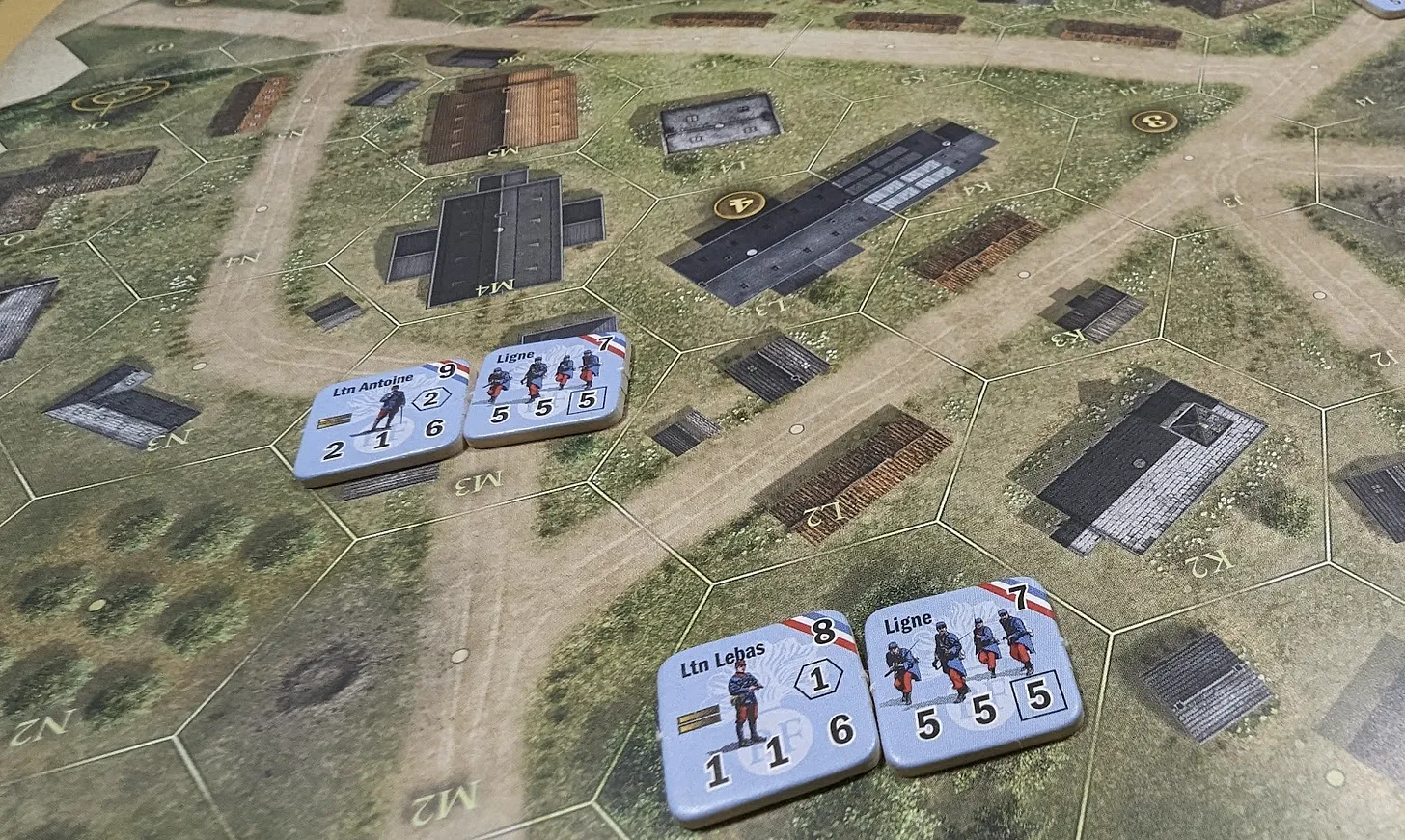
Days of Ire: Budapest 1956 (Katalin Nimmerfroh, Dávid Turczi, Mihály Vincze, Mighty Boards) and Nights of Fire: Battle for Budapest (Brian Train, Dávid Turczi, Might Boards) were two games with the topic closest to the heart – focusing on resistance in the Eastern Bloc during the Cold War. While both games are mechanically different, each reveals the topic in its own way. They are also easy to teach, and Nights of Fire worked very well with people new to wargames at a board game event we had in Vilnius. I hope that more historical games on this topic come out.
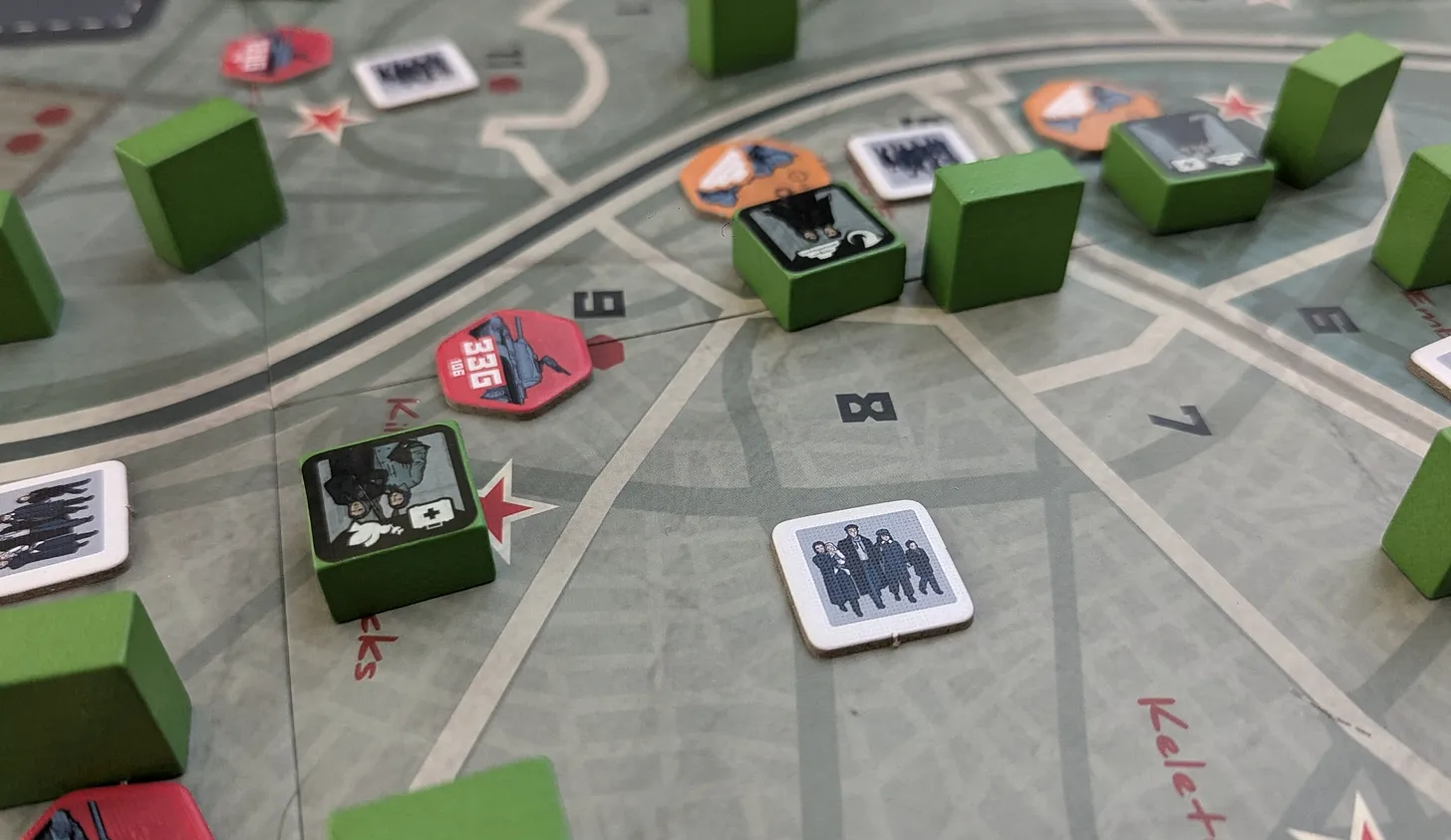
Finally, Chancellorsville 1863 (Maurice Suckling, Worthington Games) showed just how well a game can build tension through imperfect information and forcing a player to make excruciatingly painful decisions. I don’t play many American Civil War games (though I love The Guns of Gettysburg), and this one certainly encouraged me to read more about the depicted events.
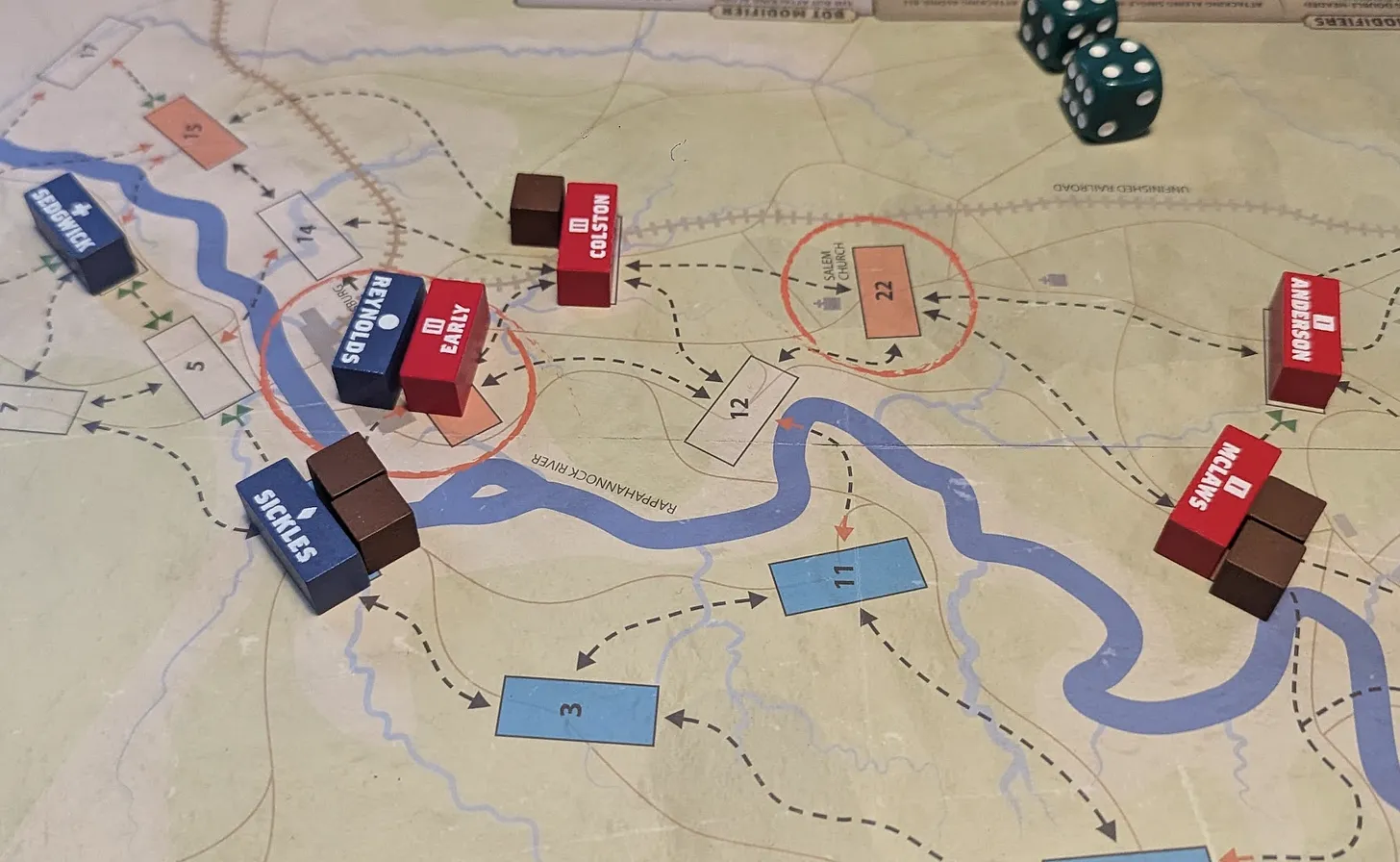
As an honourable mention, I would like to include Plantagenet: Cousins’ War for England, 1459 – 1485 (Francisco Gradaille, GMT Games), even if it is a bit like cheating, as I soloed it back in 2023. Yet, the game came to Rally the Troops platform and became my one of most played games of the year. It just illustrates how versatile and varied the Levy & Campaign system (Volko Ruhnke, GMT Games) is, and I can’t wait to see the next entries in the series (including Epipolae on the Athenian adventures in Sicily).
Wargames not (yet) published
In addition to released wargames, I had a chance to try some still in-development, mostly thanks to attending CircleDC convention in Washington D.C. in April. Here, the game that stood out the most was Overthrow (Non-Breaking Space design for Agency Perspectives). The way it models 24 hours of crisis in a capital, where the government and the opposition clash, and the different ways that players may explore in the situation, is astonishing.
Two other games Coast Watchers: Allied Field Intelligence in the South Pacific, 1942-1943 and Drachen (both from Volko Ruhnke, Coast Watchers currently on P500 from GMT Games) use a similar system of hidden planning and movement to explore the role of intelligence in different contexts. Both are engaging, and I certainly learned quite a bit about the topics, while learning them.
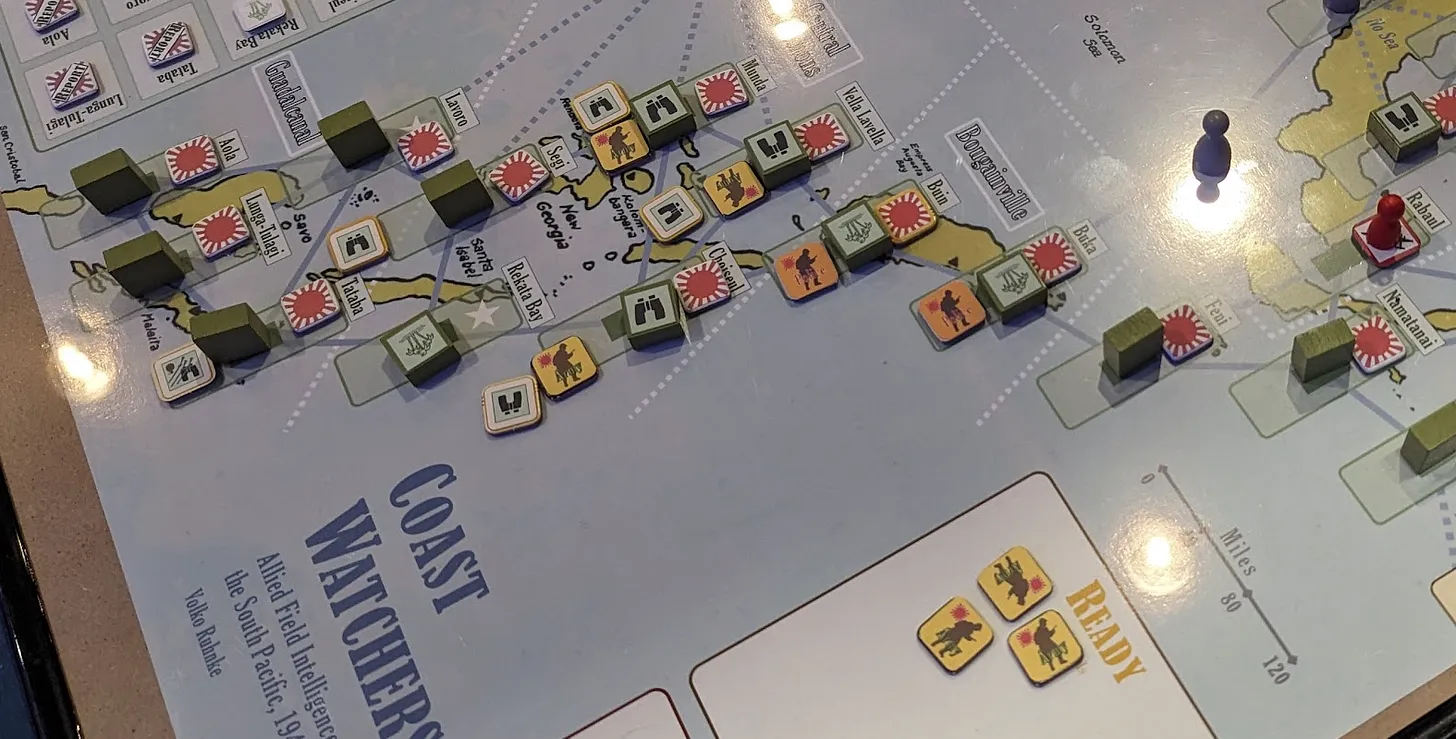
Coming back to COINs, Stephen Rangazas continues doing wonderful work on modelling insurgencies, this time with The Guerrilla Generation: Cold War Insurgencies in Latin America (currently on P500 from GMT Games). Although I only tried the Nicaragua scenario, the way in which the mechanics reflect the dynamics of the actual conflict provide yet another interesting angle on the COIN series. And I will certainly continue following whatever games Stephen Rangazas will be working on.
I signed up for trying Peace 1905 (Maurice Suckling, Fort Circle Games) without knowing much about the game beforehand, but the three-player session we had at CircleDC was great. The game really manages to capture the treaty negotiation process, and including Roosevelt as the third player is a great decision, making it a very delicate dance of a game.
I must also mention Chalice of Poison (Akar Bharadvaj), a game about Iraq-Iran War. Here, the focus is on the tensions between military performance and regime security. It is a wonder how well developed and detailed the model is, given the relatively limited components used. Something to look forward to.
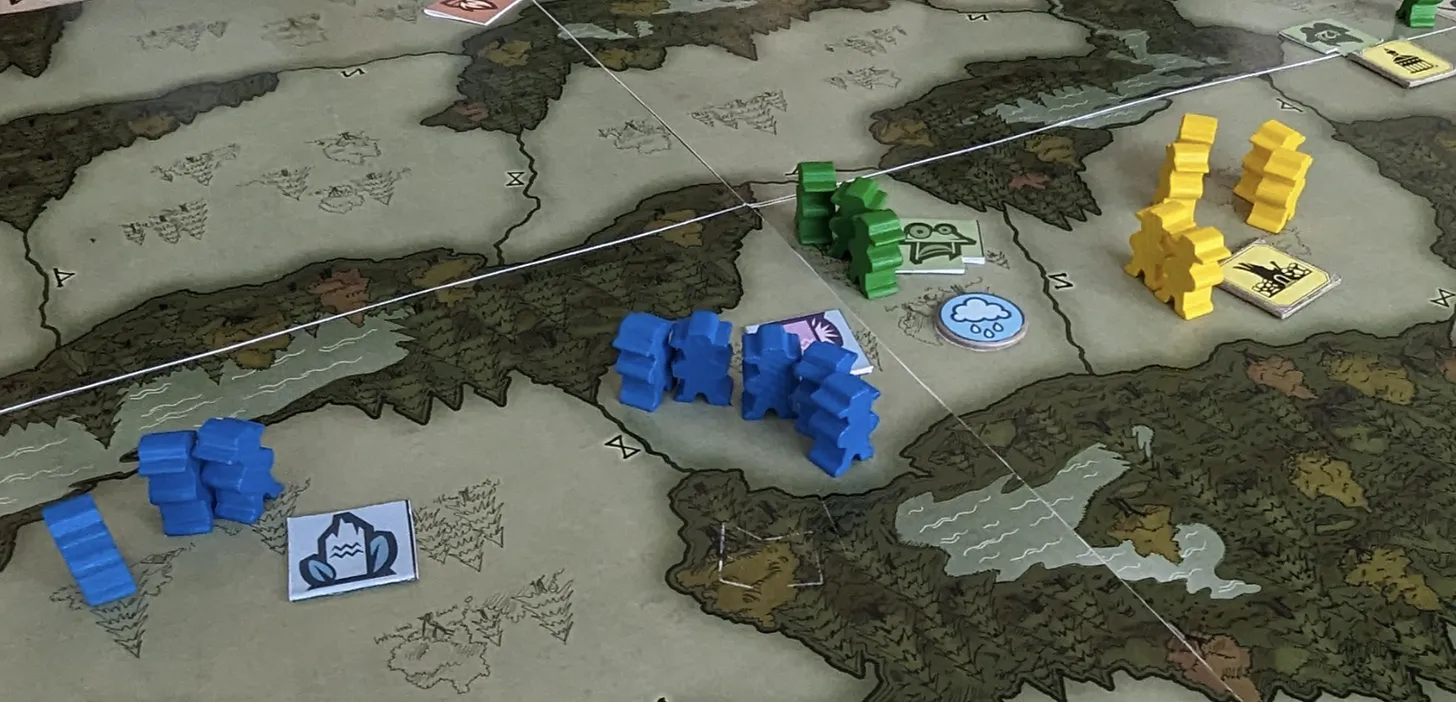
Oh, and I would consider Mushroom War (Tomas Miliauskas, Baltic Boar) a wargame, even if it is russulae, boleti, and other mushrooms going for the control of the forest. With some rootish elements, it is a thing of its own. Mushroom picking is kind of a national sport here in Lithuania, so picking fights among them should be attractive.
Finally, I would like to mention QUICK Junior (Brian Train) system, which I used a lot at the university, at different events, and even at a meeting at the General Staff. It was certainly the most impactful game this year. We first played the Daugavpils scenario at Connections UK, and then I transferred the system to Marijampolė, a town in Lithuania not too far from Kaliningrad. Bringing the scenario closer to home certainly helped not only to get it on the table at the events, but also with building greater awareness of educational and professional wargaming in general.
Non-wargames
There are also some non-wargames to mention. Firstly, Turncoats (Matilda Simonsson, Milda Matilda Games), though it has a historical background. The premise is clear, and the rules are light. Yet, decisions are as painful as they get. Do you place a glass stone from your hand and lose influence? Or do you keep it, but risk your allies losing the ground on the map?
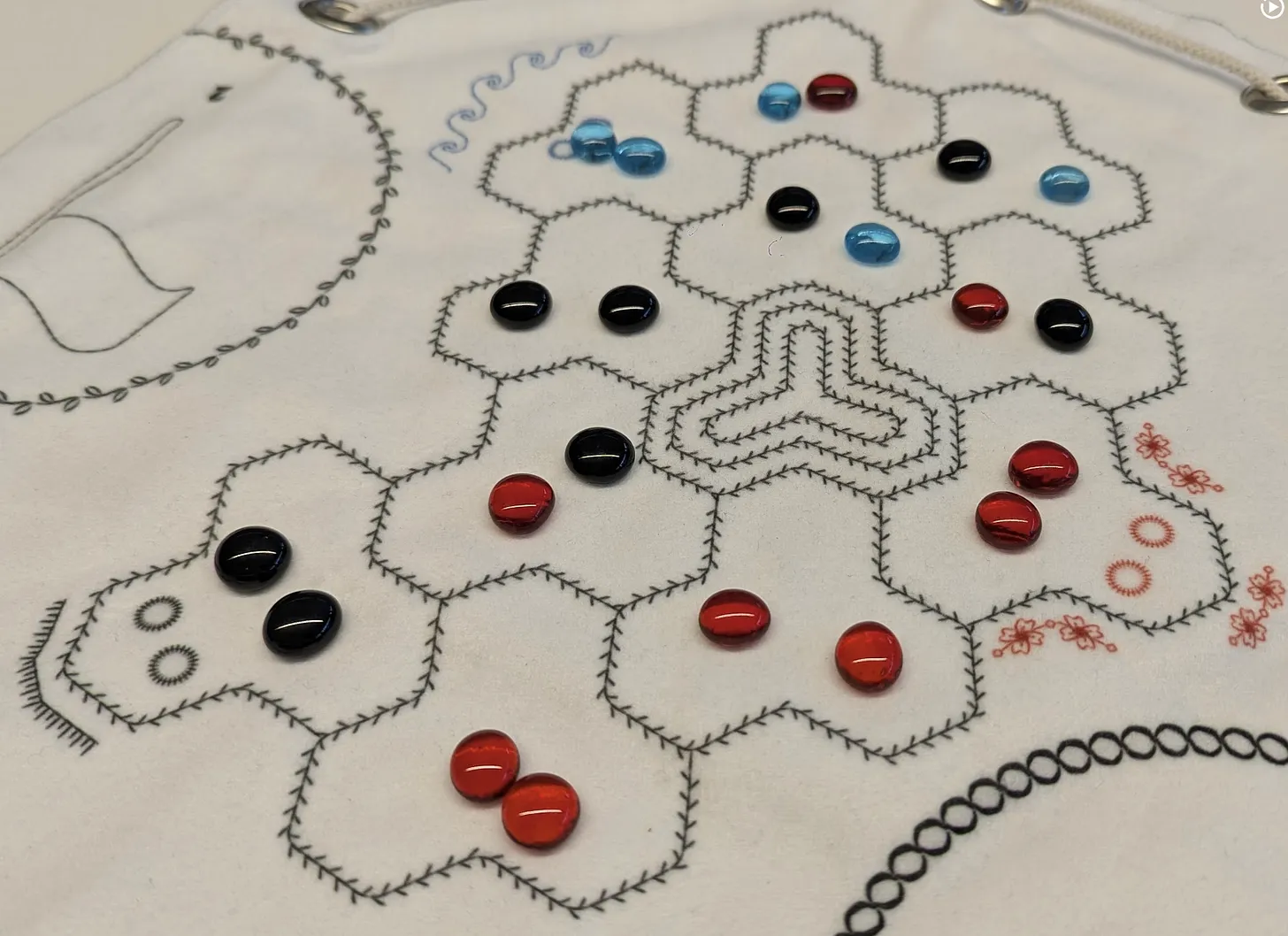
Unsurprisingly, Arcs (Cole Wehrle, Wehrlegig Games) is also among the top games of the year. Especially, with the Blighted Reach expansion. I still need to get more plays, but the differences that fates bring to the game, it’s a wonderful framework to build grand operatic sci-fi stories. If only that planet didn’t get broken in our last game…
High Frontier 4 All (Phil Eklund, ION Game Design) scared me. Yet, with a great teacher, it went way more smoothly than expected. Although there are a lot of things to keep in mind and not forget (not least, the calculations for dry and wet mass), the experience of being the first to some planet is rewarding. Even if it takes the whole workday.
Cards and party games
2024 also saw quite a few lighter games picked up. Sea, Salt & Paper (Bruno Cathala, Théo Rivière, Bombyx) with its wonderful visual design and SCOUT (Kei Kajino, Oink Games) became great travelling companions. Maskmen (Jun Sasaki, Oink Games) proved to be a fun ladder climbing game. VIVO’s (LEO, VicVillage) puppy choir is cute, but even if you think you are in control, it might be way swingier than you expect. LOOP (Takashi Saito, QURAGE) is an interesting take on trick-takers, where once the hands are dealt, they remain the same for the remaining rounds. Now, that’s a twist, isn’t it? And (spoiler alert) it works.
For a longer card game, NAWALLI (Gonzalo Alvarez, Will Rogers, Studio Tecuanis) is beautifully drawn, informative, and tense. Although it did not see many plays this year, I surely hope to come back to the Aztecan duels in 2025.
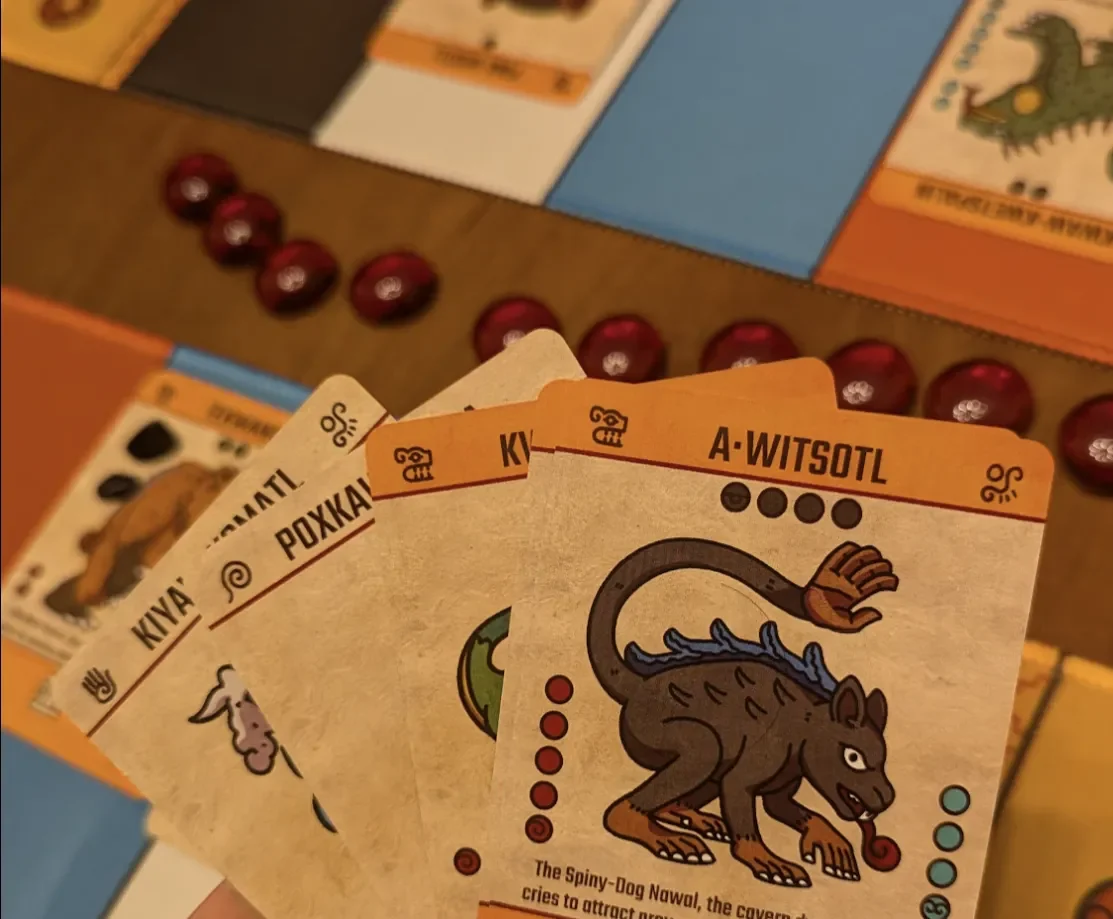
And, finally, we got a new (to us) party game in December, Wavelength (Alex Hague, Justin Vickers, Wolfgang Warsch, Palm Court). One of the funniest moments is team disagreements and generational differences that emerge. And it is always nice when the wavelengths hit just right!
Solo games
While I soloed some (mainly) multiplayer games, here, I just include the ones that are solely solo. The first one, I’d like to mention is Halls of Hegra (Petter Schanke Olsen, Tompet Games). I reviewed it earlier, and I haven’t changed my mind. It is a wonderful solo experience, plus it gets you ready for winter snow shoveling.
I, Napoleon (Ted Raicer, GMT Games) tells a story of, well, Napoleon, from the early career to the final days (which may come very soon). While I do have reservations on how much agency a player has in the game, it builds an interactive story of Napoleon’s life. For a full experience, you must read on the events and people shown in the cards, and if you do it shines in its storytelling exercise.
Another French-themed game, The Gods Will Have Blood (Dan Bullock, Lock Horns Games), is also excellent in its story telling. Mechanically light it weaves the story by putting the player in the shoes of a young magistrate in 1793. You must keep your reputation while dealing with the trials of the (supposed) enemies of the Jacobin state. It is way more challenging than it may sound.
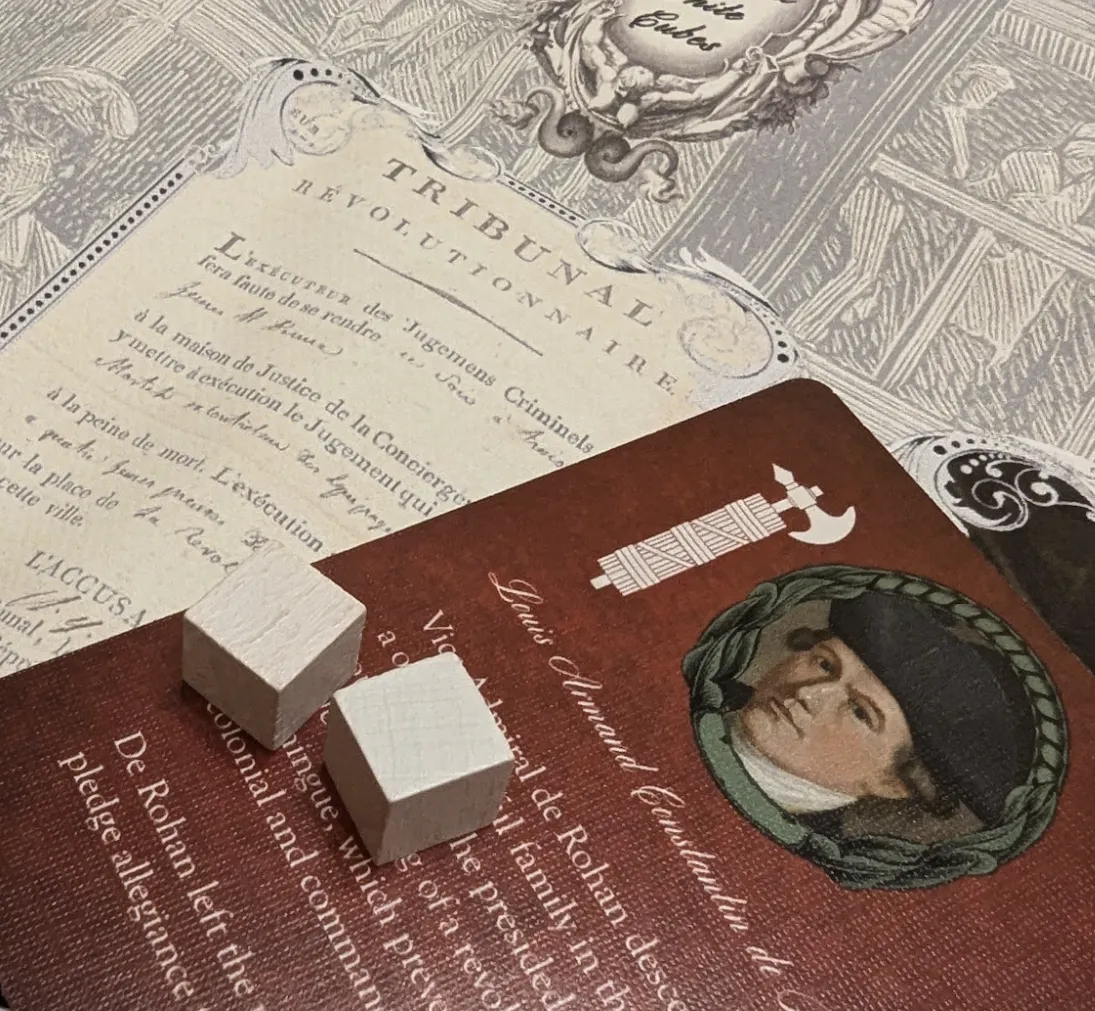
Finally, Comanchería: The Rise and Fall of the Comanche Empire (Joel Toppen, GMT Games), must be mentioned. I greatly enjoyed Navajo Wars, and this game, while keeping some known elements, tells a different story and a different process. From building the Comanche polity to its fall, the game manages to control this change of pace and direction. As someone who read a lot of Karl May as a child, it was strange to play for (and not against) the Comanches. Young me would also not be happy about it. Yet, the memories of Llano Estacado and these Winnetou days were a nice addition.
That’s it for the news of 2024. If the rest of the year goes as January began, then the list for 2025 should be quite interesting!



